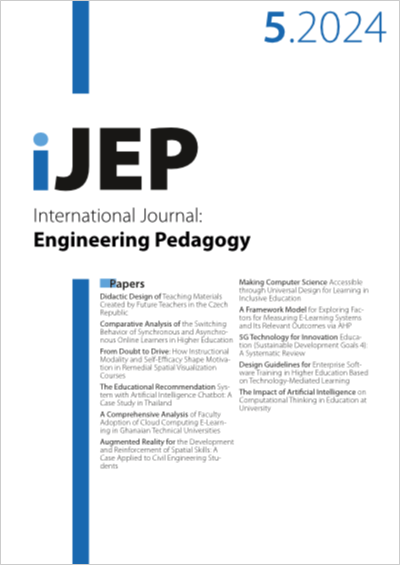Design Guidelines for Enterprise Software Training in Higher Education Based on Technology-Mediated Learning
DOI:
https://doi.org/10.3991/ijep.v14i5.47537Keywords:
design guidelines, enterprise software, higher education, SAP, technology-mediated learning, trainingAbstract
There is an increasing demand for a qualified future workforce in the enterprise software (ES) domain, for which students should be prepared. However, due to the complexity of ES, many lecturers lack the skills to practically integrate ES into their teaching activities. ES training must be investigated holistically to address this issue, integrating the perspectives of the involved actors. Therefore, the research field of technology-mediated learning (TML) offers valuable concepts. In this paper, we first identify and present five main concepts of TML performance based on related literature. Second, we present findings from a single-case study conducted within the global academic alliance program of the ES company SAP. The program’s objective is to demonstrate the practical application of ES to students through lecturers. Unlike previous research, we consider the students’ perspective and incorporate the viewpoints of lecturers and subject matter experts (SMEs) who train the lecturers to create a comprehensive overview. Based on the insights from TML literature and the case study, we present design guidelines for ES training that take into account TML concepts, actors’ perspectives, and training aspects. Our findings highlight the universal applicability of TML in the practical context of designing ES training in higher education.
Downloads
Published
How to Cite
Issue
Section
License
Copyright (c) 2024 Sophie Heim, Mayumi Egawa, Andreas Hein, Holger Wittges, Helmut Krcmar

This work is licensed under a Creative Commons Attribution 4.0 International License.



